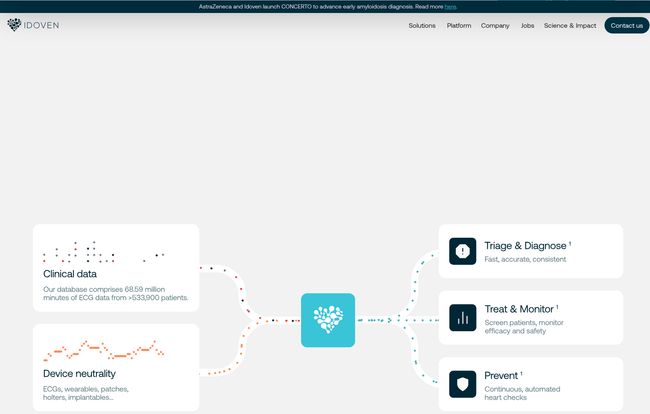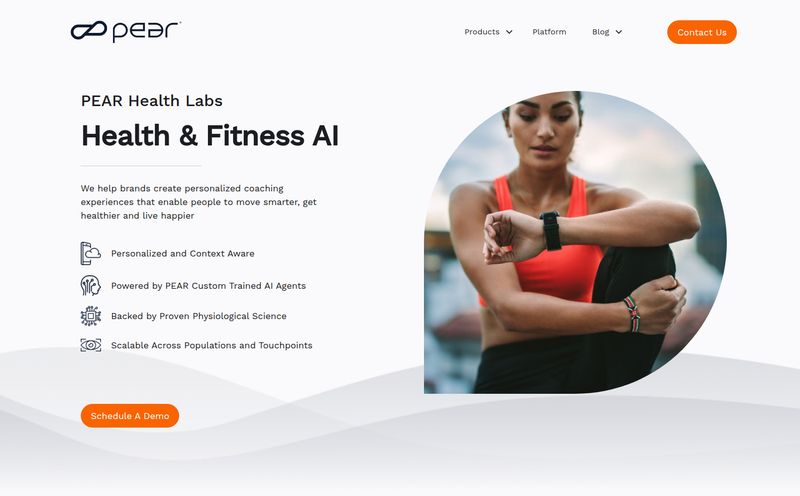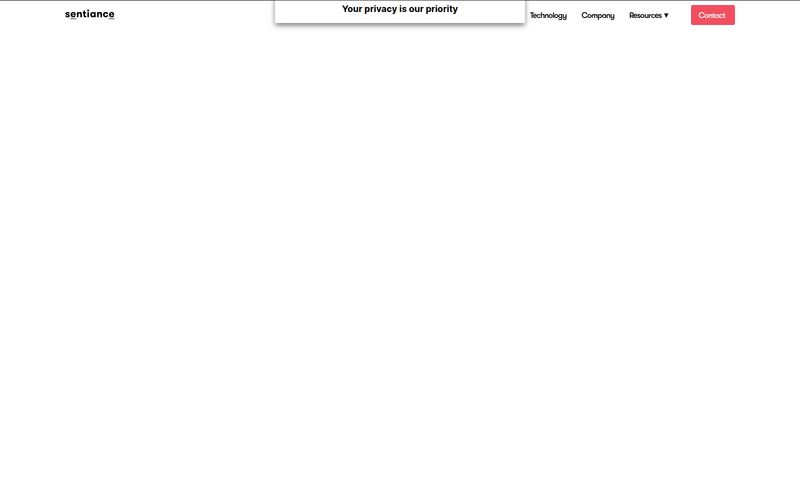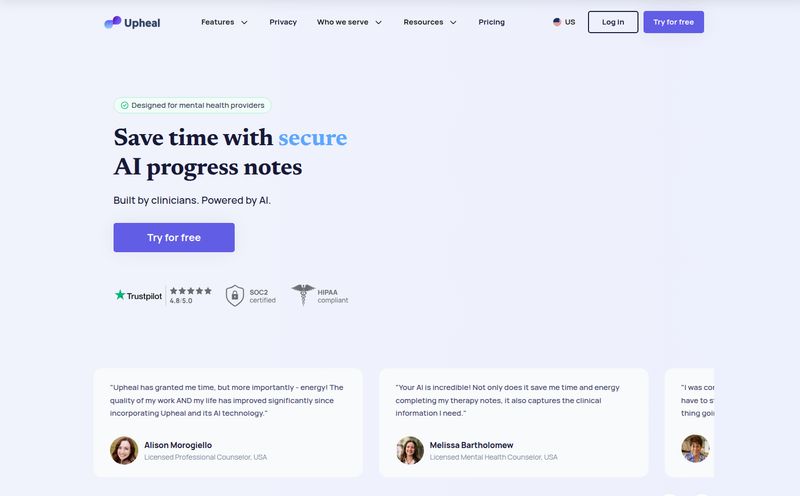It’s the kale of the tech world – suddenly it’s in everything, and you're not quite sure if it’s actually making a difference. As someone who’s been watching the SEO and tech trends for years, I've seen countless tools promise to 'revolutionize' an industry. Most of them... don't.
But every now and then, something comes along that makes you lean in a little closer. For me, in the health-tech space, that something is Idoven. They’re bringing AI to cardiology, specifically to the mind-numbingly complex task of interpreting electrocardiograms (ECGs). And they’re not just making noise; they’re making some serious, scientifically-backed waves. So, I decided to do a deep dive, cut through the marketing fluff, and see what’s really going on with this platform.
So, What Exactly is Idoven? (Beyond the Hype)
At its core, Idoven is an AI that reads heartbeats. Simple, right? But the scale is what gets you. Think of the sheer volume of ECGs a hospital generates. It's a data deluge. For every cardiologist, there are thousands of squiggly lines on a page to read, each one a potential story of a life at risk. It’s a huge bottleneck in cardiac care.
Idoven’s platform, which they’ve named Willem™, acts like a seasoned cardiologist's assistant who never sleeps and has a photographic memory. It has been trained on a massive database of over 1.25 million ECGs. This isn’t just a bunch of data scraped from somewhere; it’s from a diverse set of over 10,000 patients, which is critical for building an AI that isn’t biased and can recognize a wide range of conditions. It's trained to spot 23 different cardiac patterns, some of which are incredibly subtle.
This is the kind of tool that promises to move the needle from reactive to proactive healthcare. Instead of waiting for a major cardiac event, you can potentially spot the warning signs months or even years in advance. It's a pretty compelling idea.

Visit Idoven
The Science Behind the Scenes Looks Impressive
My inner cynic always kicks in when I see a slick website. But Idoven backs it up with some serious credentials. This isn’t a couple of developers in a garage with a cool algorithm. We’re talking about a platform that is certified as a Medical Device Class IIa under European regulations. For those not in the MedTech world, that's a huge deal. It means it has passed rigorous safety and performance checks.
Then you see the list of partners: GE Healthcare, Abbott, Medtronic. These are titans of the industry. They don't just partner with anyone. It's a massive vote of confidence.
And they’re transparent about their scientific grounding, mentioning 12 peer-reviewed publications and 21 patents filed. They're not just selling a product; they're contributing to the science. There's also a powerful human story attached to it, with legendary footballer Iker Casillas, who suffered a heart attack in 2019, championing their cause. When someone with that kind of personal experience gets involved, it adds a layer of authenticity that marketing slogans just can’t buy.
Key Features That Actually Matter
Okay, let's talk about the actual tools. The AI-powered ECG interpretation is the star of the show, obviously. It’s designed to slash the time and cost associated with having a human expert review every single strip of paper. But it's the other features that show they understand the entire healthcare ecosystem.
Idoven provides disease risk scores using ECG-based biomarkers. This is the crystal ball of cardiology. The AI can look at a seemingly normal ECG and identify markers that suggest a higher risk for future problems. It’s preventative medicine in its purest form.
They also get major points for thinking about workflow. Their platform is built for integration with existing Electronic Health Record (EHR) systems and home monitoring devices. In my experience, the biggest hurdle for any new health tech isn't the technology itself, its the integration. Getting it to play nice with the clunky EHR system the hospital bought in 2008 is half the battle. Idoven seems to get that, which is refreshing.
The Good, The Bad, and The Realistic
No tool is a silver bullet. As promising as Idoven is, it’s important to have a clear-eyed view of what it is and what it isn't. I've broken down my thoughts into what I see as the major pros and the practical considerations you'd need to think about.
| The Upsides | The Practical Hurdles |
|---|---|
| Early & Accurate Detection: The ability to spot 23 cardiac patterns and provide risk scores can genuinely save lives by catching issues earlier than traditional methods. | Integration is Required: This isn't standalone software. It needs to be integrated with your existing ECG hardware and EHR systems, which takes time and technical resources. |
| Efficiency Boost: It reduces the manual interpretation workload on cardiologists, freeing them up for more complex patient care. This helps combat burnout. | Not a Doctor Replacement: The AI is a powerful decision-support tool, but it doesn't replace the final judgment of a clinician. It augments, not automates, the final diagnosis. |
| Regulatory Trust: Being a certified Class IIa Medical Device and having ISO certifications for data privacy (like ISO 27001 and GDPR compliance) is critical for adoption. | Data Privacy Questions: Even with top-tier certifications, handling patient data at this scale will always invite scrutiny. Organizations need to be confident in the security protocols. |
What's the Damage? A Look at Idoven's Pricing
And now for the million-dollar question: how much does it cost? Well, if you go looking for a pricing page on their website, you'll hit a dead end. I did. You get a polite 'Sorry, we couldn't find that page' message.
This isn't surprising, and it's not necessarily a red flag. For enterprise-level, B2B platforms in a regulated field like healthcare, 'one-size-fits-all' pricing just doesn't work. The cost will almost certainly depend on the scale of the institution, the depth of the integration, the number of ECGs being processed, and the specific features required. It’s a “you have to call them” situation. While it’s a bit of a pain for those of us doing initial research, it’s standard practice for this kind of bespoke solution.
Who Is This Really For?
Idoven isn’t an app you download on your phone. It’s a heavy-duty platform for specific professional users.
- Hospitals and Large Clinic Systems: For these organizations, Idoven’s value is in triage and efficiency. It can help them quickly sort through thousands of ECGs, flag the urgent ones, and reduce the diagnostic wait times for patients.
- Pharmaceutical and Life Sciences Companies: When running clinical trials for a new cardiac drug, you need to find the right patients and monitor them closely. Idoven can help identify patient cohorts based on subtle ECG biomarkers and monitor them remotely, making trials faster and more effective.
- MedTech innovators: A company developing a new wearable ECG monitor or a smart defibrillator could integrate Idoven’s Willem™ AI directly into their device. This gives their hardware a powerful, certified diagnostic brain right out of the box.
So, is Idoven the future of cardiac care? Look, the future is a big place, but this feels like a significant piece of it. It’s a powerful, well-validated tool that addresses a real-world problem. It’s not magic, it requires work to implement, and it will never replace the empathy and complex decision-making of a human doctor. But as a way to empower those doctors, to catch problems earlier, and to make sense of the overwhelming amount of data in modern medicine… yeah, I think this is a big step in the right direction.
Frequently Asked Questions about Idoven
- What is Idoven in simple terms?
- Idoven is an advanced AI platform that analyzes electrocardiograms (ECGs) to help doctors detect heart diseases early. Think of it as a highly intelligent assistant for cardiologists that can spot subtle problems in a patient's heartbeat.
- Is Idoven certified for medical use?
- Yes. Its core platform, Willem™, is certified as a Medical Device Class IIa in Europe. It also holds several ISO certifications for data security and privacy, including ISO 27001 and compliance with GDPR.
- Can Idoven replace a cardiologist?
- No. Idoven is designed as a decision-support tool to augment the skills of a human clinician. It provides incredibly fast and accurate analysis, but the final diagnosis and treatment plan is still made by a qualified medical professional.
- How does Idoven's AI learn?
- The AI was trained on a massive, diverse database of over 1.25 million ECGs from more than 10,200 patients. This extensive training allows it to recognize 23 unique cardiac patterns with a high degree of accuracy.
- Who are the main users of Idoven's platform?
- The primary users are hospitals, life sciences companies conducting clinical trials, and MedTech companies that want to integrate AI into their own cardiac devices.
- Is Idoven's pricing available online?
- No, Idoven does not list public pricing. As an enterprise-level solution, pricing is customized based on the specific needs of the organization, such as the scale of implementation and features required. You need to contact them for a quote.



